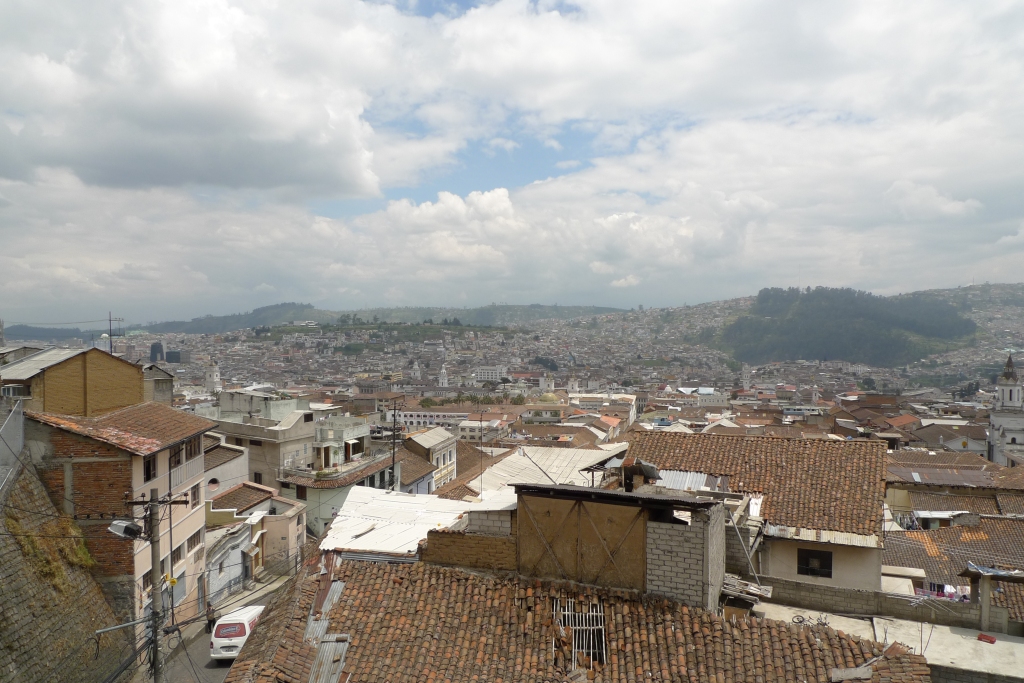Quito has the largest identifiable colonial center in Latin America. It has the famous designation as a World Heritage Site and as such must restrict development, renovation,painting and change to maintain it's status. What I find remarkable about this colonial center of town is that it is still a vibrant, lower working class environment that has been cleaned up. It has only one street, La Ronda, that has received, in my opinion, undue sanitary whitewashing to the point of museum. Others might not agree but then,this IS my Blog. Over the years, drunks and prostitutes have been removed, streets closed to traffic which makes this a walking friendly area. Social police are present to offer directions and be helpful. Guns and rifles are not visible. Something else isn't very visible. Hole in the wall restaurants that cater to the lunch crowd. Seating between 4-8 tables 'cheek to jowl' I had a lunch that cost me $2.00. A large glass of juice, a large bowl of tasty soup, a plate full of rice,beans, a slice of plátano,and several pieces of cooked pork. $2.00, just like we remember it when we travelled 20-30-40 years ago. Gas is $1.46 regular. Enough. Back to Colonial Quito. A few pictures of the vibrant area at 10,000' and an interior that is old.
[caption id="attachment_501" align="alignnone" width="1024"]

looking over colonial Quito toward el panacillo (the breadloaf'

- another view

- note how the string is lashed around a supporting timber, interwoven around the bamboo. Age unknown but must be over 150 years old and still holding strong.[/caption]
- a contrast between a ceiling that is old and hand painted and the substrata that is supporting the ceiling. It is bamboo held together with 'cabulla' a string made from a plant in the maguey family.
 looking over colonial Quito toward el panacillo (the breadloaf'
looking over colonial Quito toward el panacillo (the breadloaf'

No comments:
Post a Comment